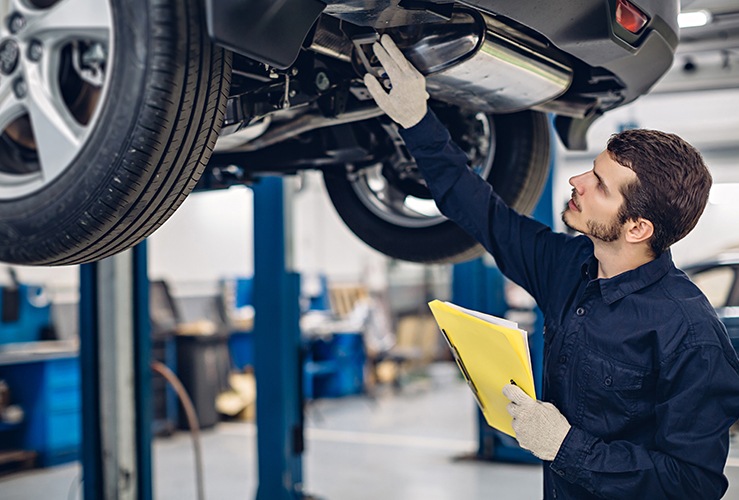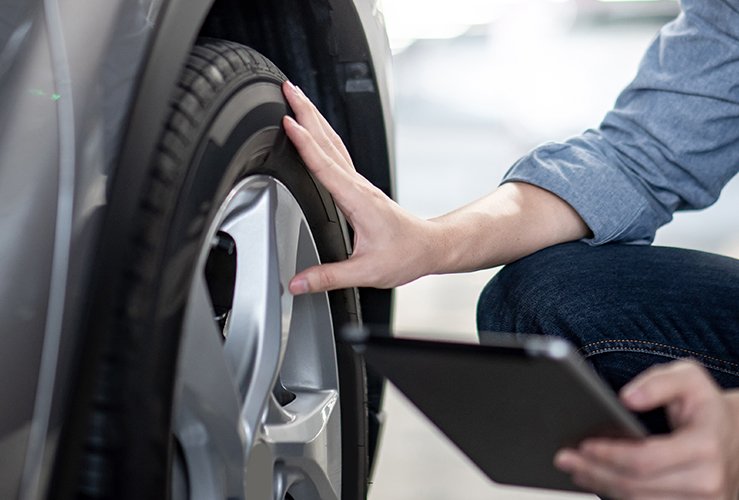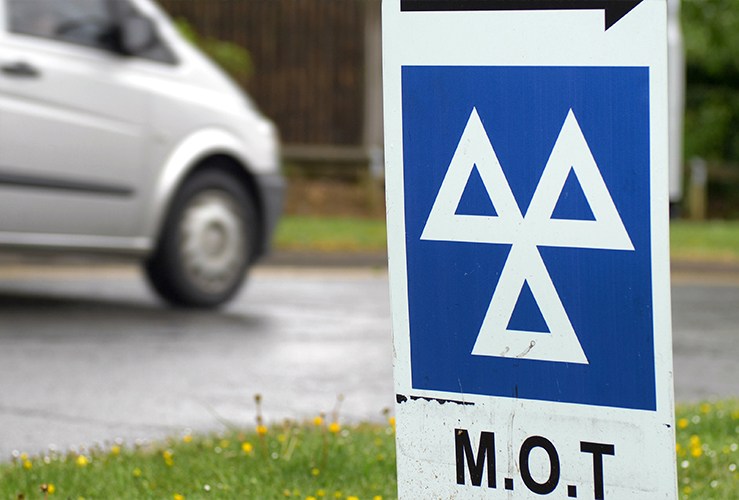If you're reading this, chances are your MOT will soon be due for renewal. Crucially, this mandatory test helps ensure your vehicle is roadworthy and safe. It also eliminates the chance of being fined up to £1,000 for driving without one.
But there's no denying it takes time and effort to organise an MOT. And aside from the MOT cost itself - £54.85 for most cars - it could result in repair bills if your test centre finds fault with your vehicle.
In this guide we look at ways to reduce the chances of forking out large sums to meet current MOT standards.

Check your lights
With around 20% of MOT fails down to faulty lighting, this is something you should check ahead of your MOT test. If you do have faulty lights, replacing them yourself is a straightforward affair. Check your headlights, brake lights, hazard lights, indicators, high beams and dipped lights are all working properly. You'll need someone to observe these working from outside the vehicle.
Increase brake/brake pad lifespan by driving smoothly
Another common cause of MOT failure is worn or faulty brakes. But by adopting smooth, steady driving habits, and avoiding hard braking, your braking system and brake pads will last much longer - saving you money over the long term.
Consult your user manual for part replacement intervals
Different parts of your car will wear out at different times. To stay on top of your vehicle's maintenance, read your user manual to determine when parts should be replaced. This means you'll avoid unexpected repair bills - and reduce the chances of finding yourself broken down by the roadside.

Check your tyres ahead of the MOT
To pass your MOT, each of your tyres will need at least 1.6 millimetres of tread. Checking this will avoid any unexpected repairs come test day (worn tyres will result in a straight-out failure). You can use a 20p piece to quickly check your tread depth; if the outer band of the 20p is visible above the tread gap, your tyre is below the minimum requirement.
Keep your tyres inflated at the recommended pressure
Under-inflated tyres will cause more road friction, increasing fuel consumption and slowing your vehicle down. Over-inflated tyres also come with a cost - they’ll wear out more quickly, leading to more regular replacements. Either way, keeping your tyres at the recommended pressure will save you money.
Choose your maintenance garage carefully
It may be cheaper to get your maintenance done by an independent garage, rather than your local dealership. Friends or family may know a reputable independent garage nearby. A small minority of garages recommend unnecessary extra work - or even carry out work without your authorisation - in order to increase the final bill. While rare, it's a good reason to find a trustworthy local mechanic.

Find cheaper parts online
If your garage recommends having certain parts replaced, and if they appear to be charging over-the-odds for these, you may wish to search for cheaper parts online. You can then have these shipped to you and hand them to your garage, and you should only be charged for labour. In some cases, this can save you hundreds of pounds, so it's worth bearing in mind.
Keep service records to spot potential faults
By keeping a detailed service record of your car's repairs, your MOT centre will be better able to spot potential mechanical issues. Apparently minor issues can soon turn into serious ones, especially with complex systems like the gearbox or engine. By keeping tabs on repairs, you'll avoid unexpected and costly repairs.

Consider a second opinion if you fail your MOT
Your car may fail its MOT for objectively accurate reasons - e.g. insufficient tread depth. However, it may fail due to a more subjective reason - i.e. in the opinion of the person carrying out the test, a repair is required.
If your vehicle is in generally good condition, but fails for an objective reason, you may wish to get a second opinion.
Taking your car to a council-run MOT centre means the potential economic motive for recommending unnecessary repairs is eliminated. However, do bear in mind that the original test centre may offer a free retest if subsequent remedial work is done by them.
Think about an extended warranty to avoid costly repairs
The older your vehicle gets, the more likely repairs will be required. To protect yourself from unexpected and expensive repairs, you may wish to extend your vehicle's warranty.




